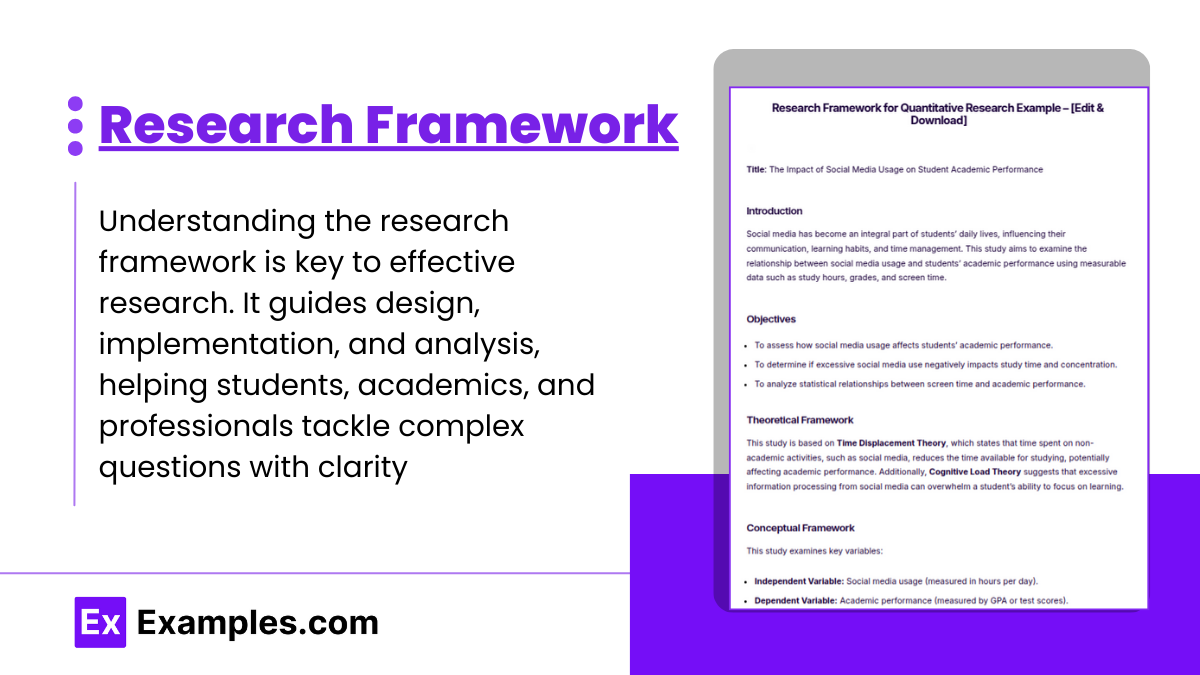10+ Research Framework Examples to Download
Understanding the research framework is essential for anyone embarking on scholarly or professional research. This foundational tool outlines the methods and approaches necessary to tackle complex questions, guiding researchers through the design, implementation, and analysis phases of their studies. Whether you’re a student, an academic, or a professional, grasping the intricacies of a research framework can significantly enhance the clarity and effectiveness of your work.
What is Research Framework?
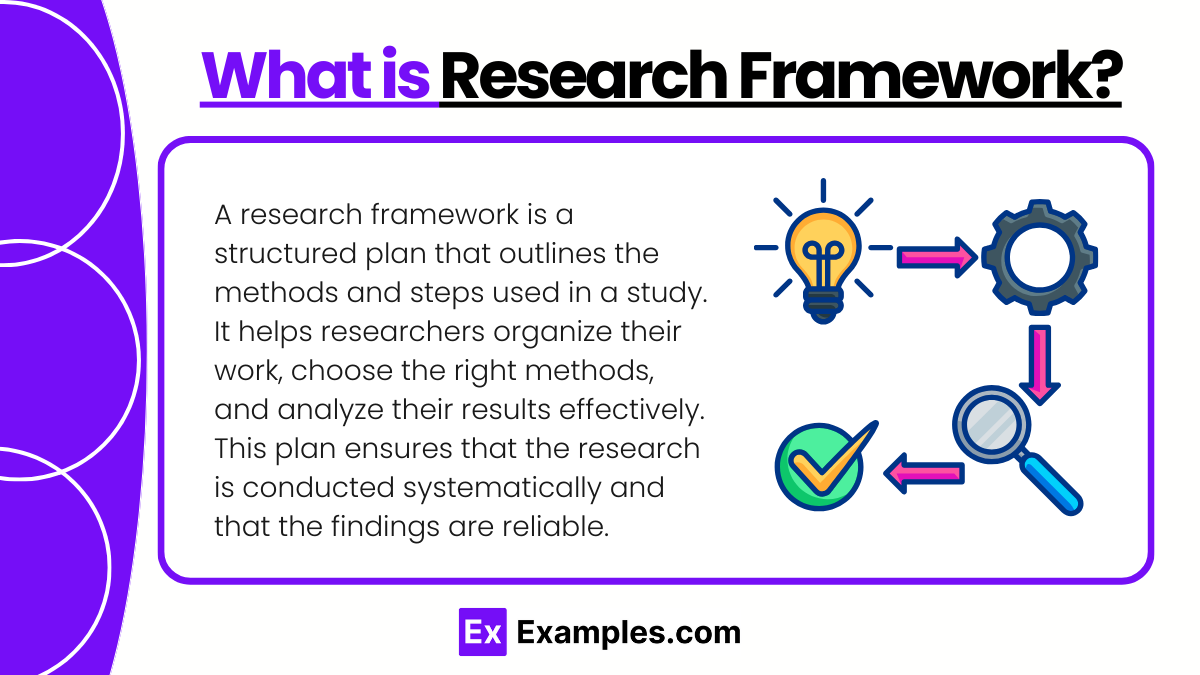
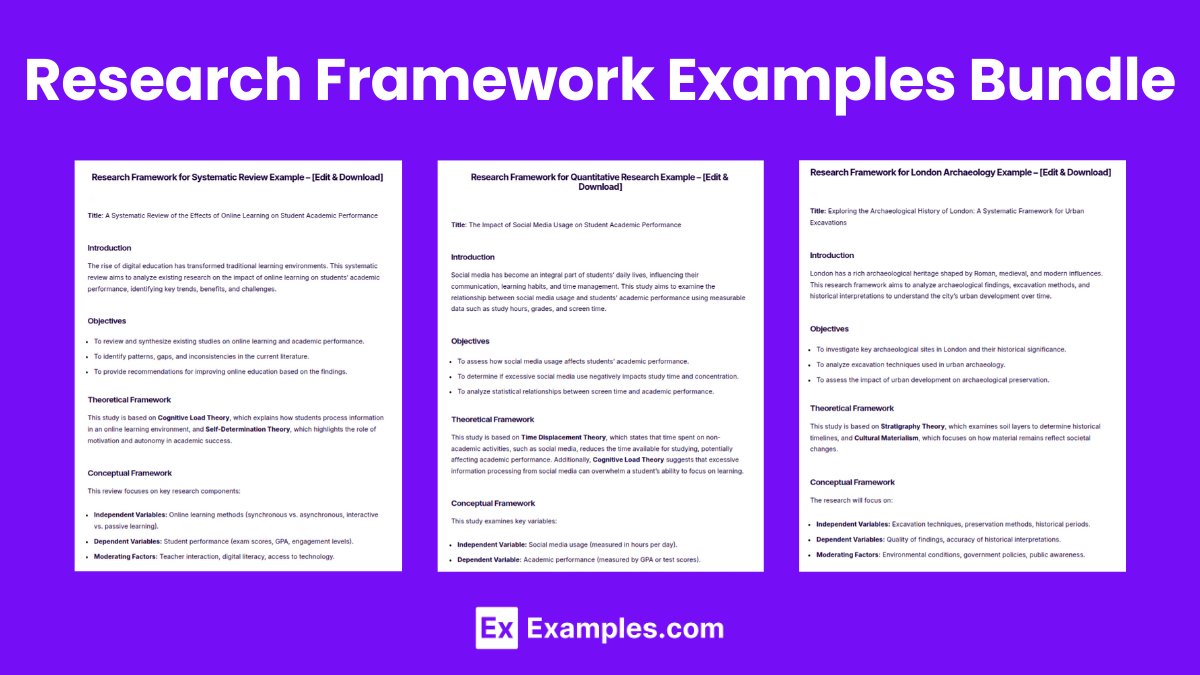
Research Framework Examples Bundle
Research Framework Format
Title
Clearly state the research topic or question.
Introduction
Provide background information and explain the purpose of the study.
Objectives
Define the main goals and expected outcomes of the research.
Theoretical Framework
Explain the theories or models that support the research.
Conceptual Framework
Describe the key concepts and how they relate to each other.
Methodology
Outline the research design, data collection methods, and analysis techniques.
Scope and Limitations
Specify the study’s boundaries and any potential constraints.
Significance of the Study
Highlight the importance and potential impact of the research.
References
List the sources used in the study.
Research Framework Example
Research Framework Examples
Research Framework for Quantitative Research
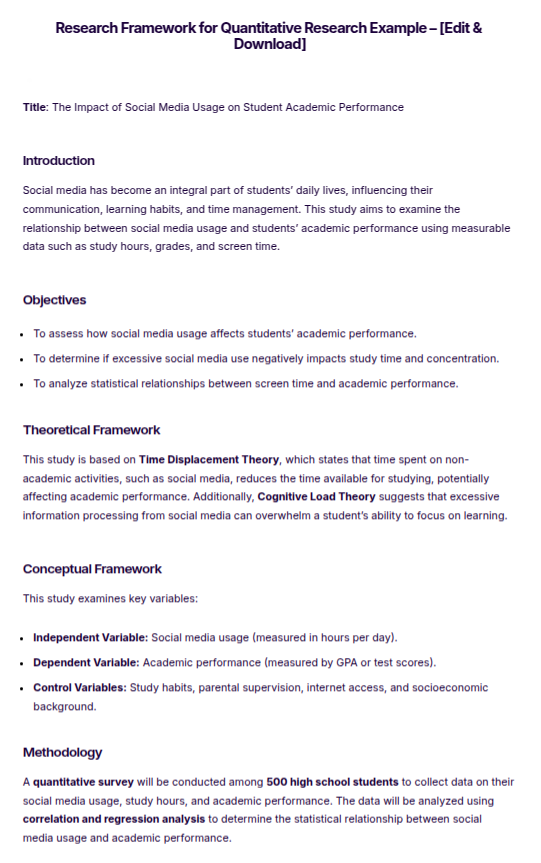
Valuation Methods in Restructuring
Research Framework for Systematic Review
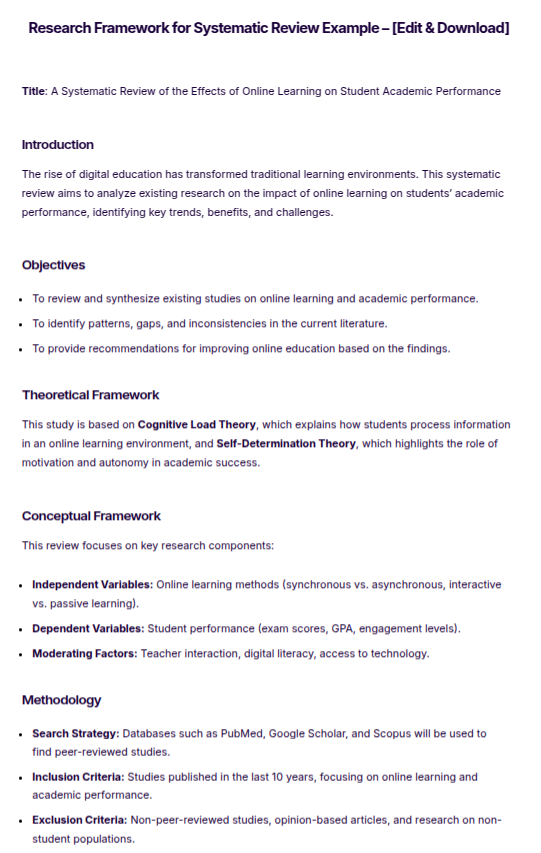
Research Framework for London Archaeology
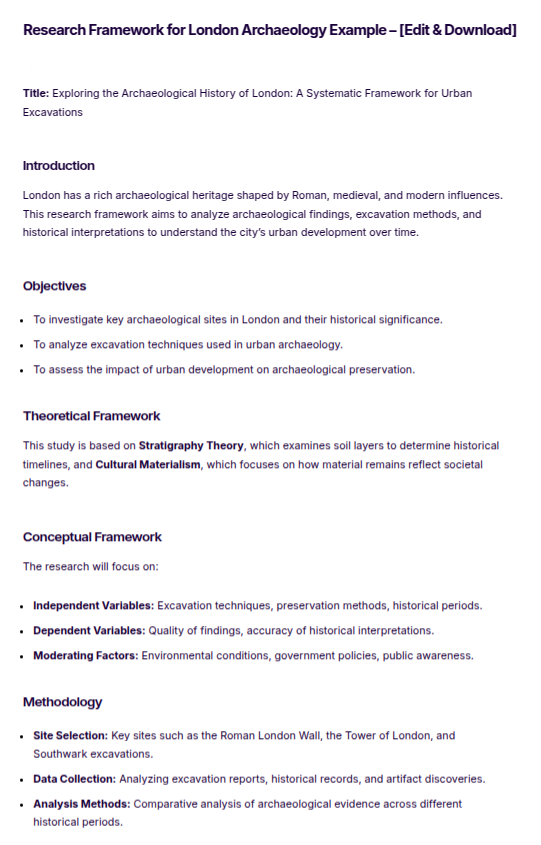
More Examples on Research Framework
- Research Framework for Thesis
- Research Framework for Research Paper
- Action Research Framework
- Market Research Framework
- Initial Research Framework
- Theoretical Research Framework
- Conceptual Research Framework
Research Framework Plan Example
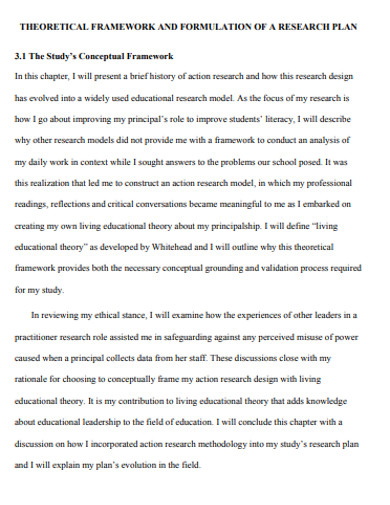
Research Framework Policy Example
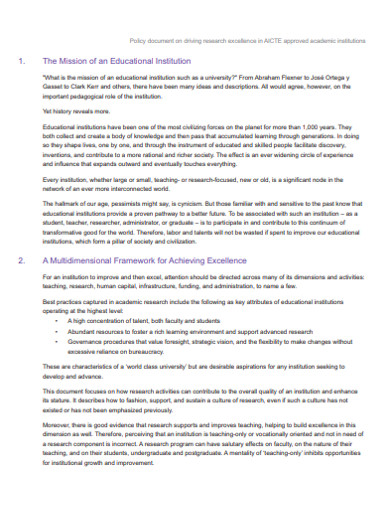
Feminist Research Framework Example
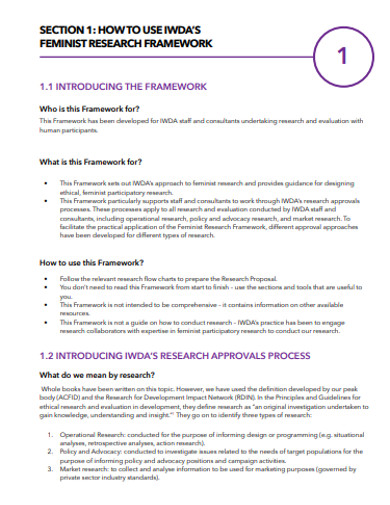
Research Methodology and Analysis Framework Example
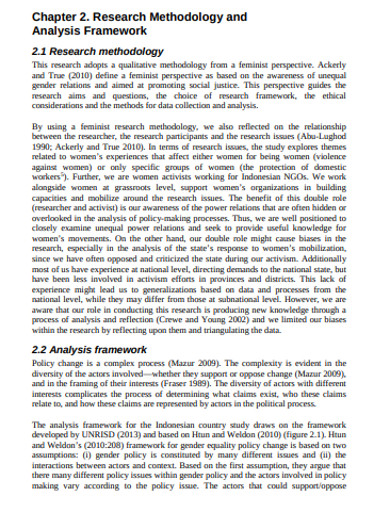
Types of Research Framework
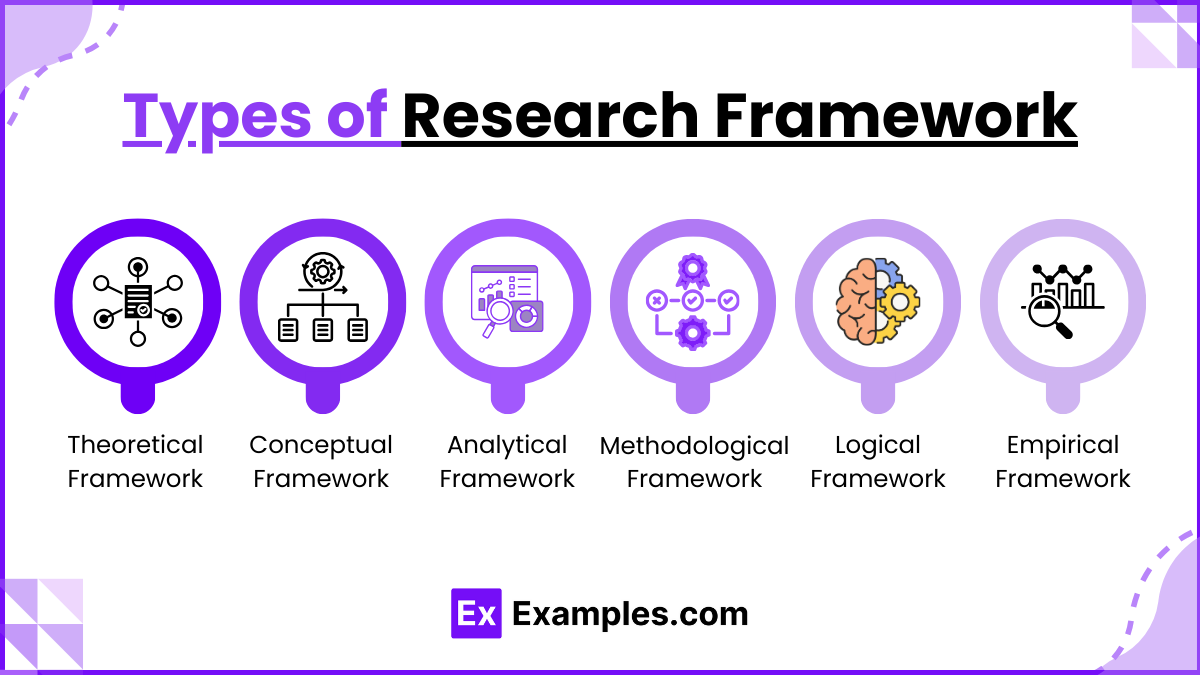
1. Theoretical Framework
Explains the theories and models that support the research. It provides a foundation for understanding the study’s concepts and relationships.
2. Conceptual Framework
Defines key variables and shows how they interact. It helps in visualizing the research structure and guiding data collection.
3. Analytical Framework
Focuses on methods used to analyze data. It includes statistical models, qualitative analysis techniques, or experimental approaches.
4. Methodological Framework
Outlines the research design, data collection techniques, and sampling methods. It ensures consistency in conducting the study.
5. Logical Framework
Used in project-based research to track inputs, activities, outputs, and outcomes. It helps in evaluating the effectiveness of a study.
6. Empirical Framework
Based on observed and measured data. It focuses on real-world evidence rather than theories or assumptions.
How to Apply Research Framework
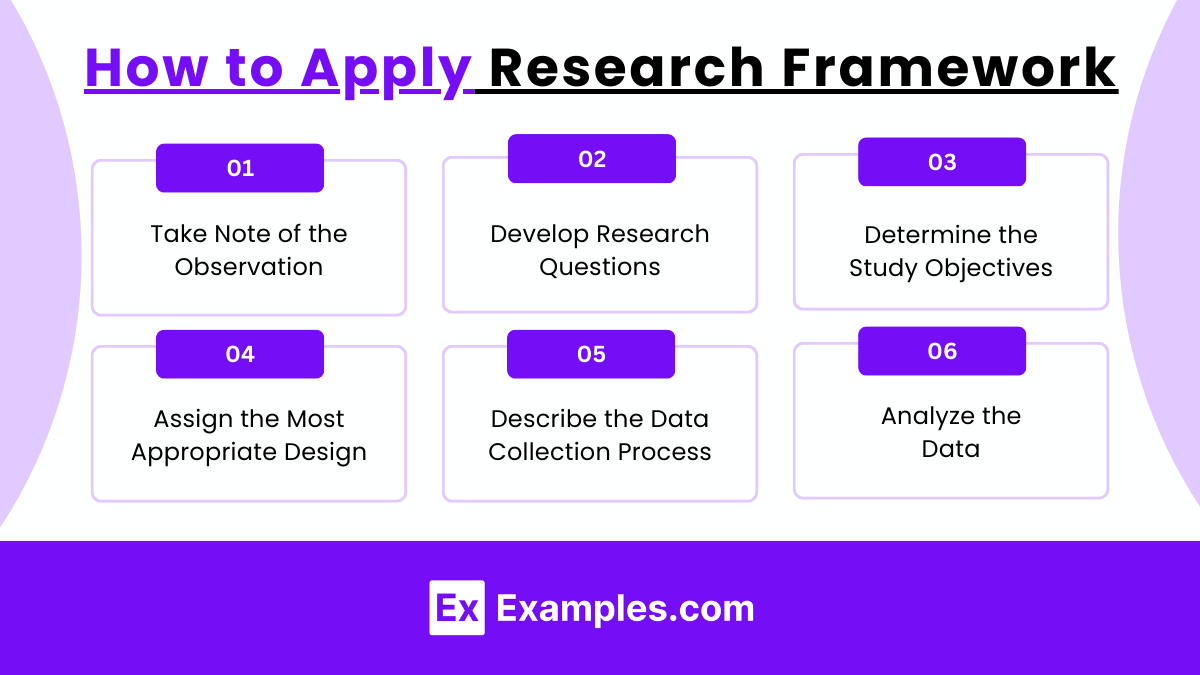
In applying the framework to research projects such as experimental investigations for the first time, following a guide can be essential to prevent your research from going astray. Read the following instructions to ensure that you are doing your research correctly.
1. Take Note of the Observation
When researching with a set framework, the first thing that you must do is to observe the research surroundings. There are many ways to do your observation. You can take note of the indicators that will reveal the hidden matters during your study. In the process, you may notice unusual activities that may need further examination. You can also uncover a connection between one or two matters, which the existing information didn’t cover.
2. Develop Research Questions
By following the previous step, you should be able to take note of remarkable observations. Through these remarks, you will formulate the research questions. In doing so, make sure that the items that you have come up with will interest you and your audience. Aside from that, it would help if you were the first individual who will answer the questions. However, you also have to ensure that these questions are answerable given the time and the resources that you have.
3. Determine the Study Objectives
Once you have gathered the research questions, you can easily create the objectives of your project. Develop answerable, predictive, and clear assertions.
4. Assign the Most Appropriate Design
By choosing a research method, you can determine how to gather the necessary data, which is crucial to come up with a conclusion of your research. Case study, open-label, parallel design, cross-sectional, and case-control are a few of the vast array of the research designs that you can choose from to apply in your project.
5. Describe the Data Collection Process
Explain all the procedures for gathering the necessary information for your study. This essay should cover the process involved in collecting and storing the data. Specify the individuals or organizations that can retrieve the data and the steps that you are going to take in ensuring the subject and the data confidentiality.
6. Analyze the Data
Once you have all the necessary information, analyze it using statistical methods to come up with the best solution, and conclusion for your research project. Lastly, present the results to the target audience.
FAQs
Why is a research framework important?
It provides a clear structure, defines variables, and ensures consistency in methodology. A well-defined research framework helps researchers stay focused, improves reliability, and enhances the credibility of findings.
Can a research framework be modified during a study?
Yes, it can be adjusted if new data, insights, or challenges arise. However, modifications should be justified and documented to maintain research integrity and credibility.
What is the difference between theoretical and conceptual frameworks?
A theoretical framework explains research using existing theories, while a conceptual framework defines key concepts and their relationships within the study. Theoretical frameworks provide broad perspectives, while conceptual frameworks focus on specific study variables.
How do you develop a research framework?
Identify the research problem, define key concepts, choose relevant theories, establish relationships between variables, and select appropriate methodologies. A well-structured framework ensures systematic research progression.
Can a research framework be used in both qualitative and quantitative research?
Yes, a research framework applies to both qualitative and quantitative studies. It structures research design, guides data collection, and ensures systematic analysis, whether focusing on numerical data or exploring in-depth insights and interpretations.


